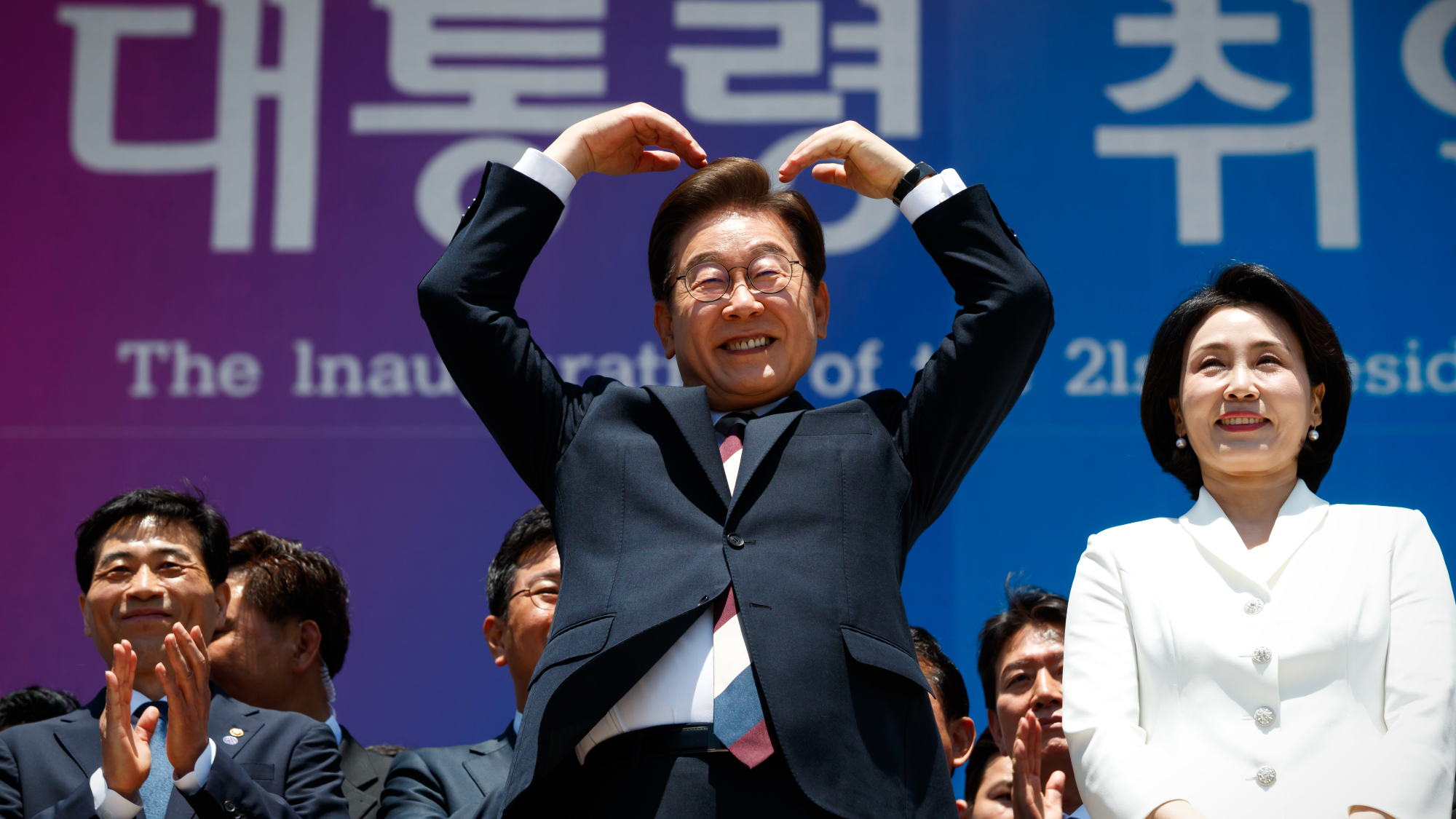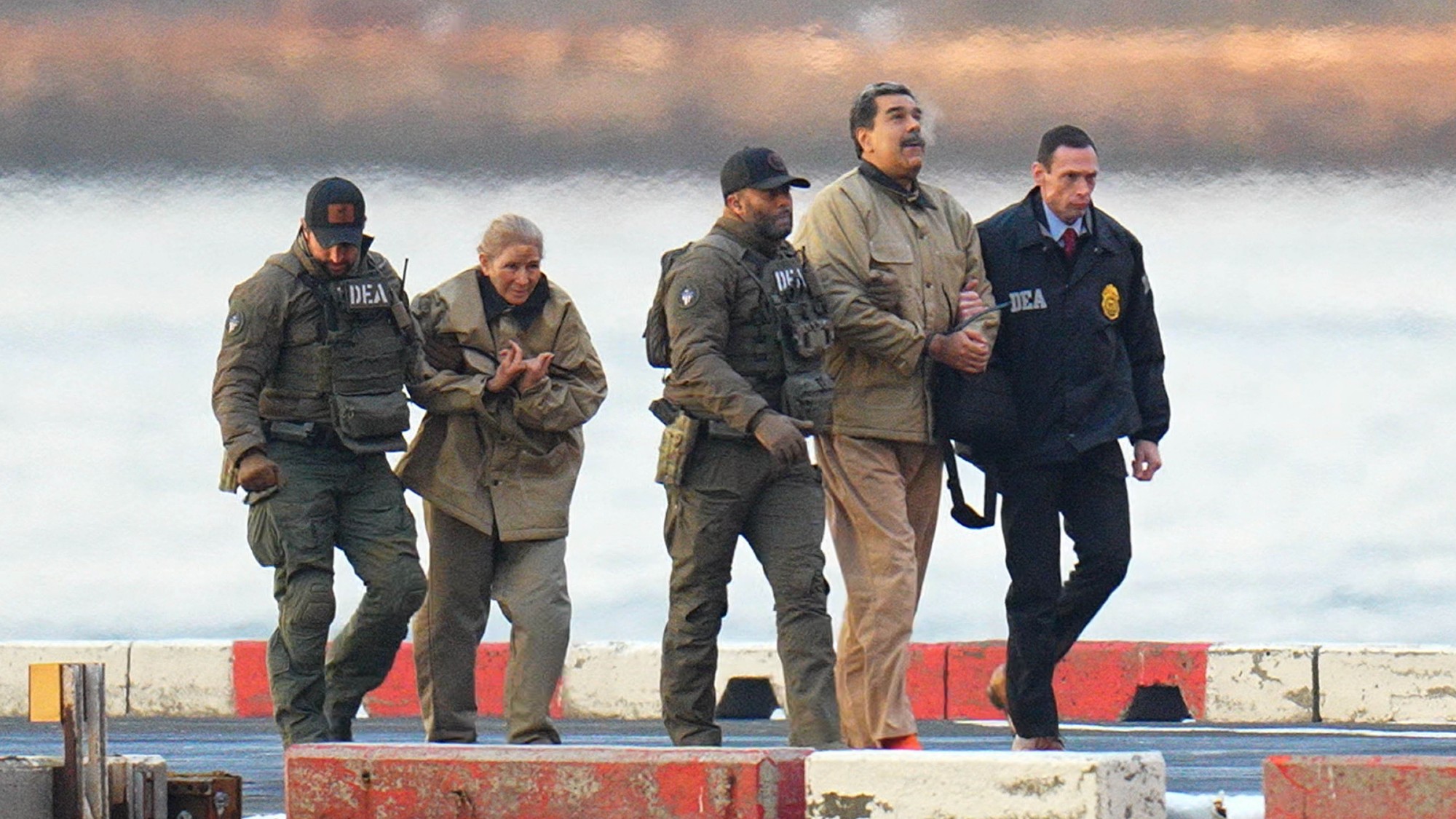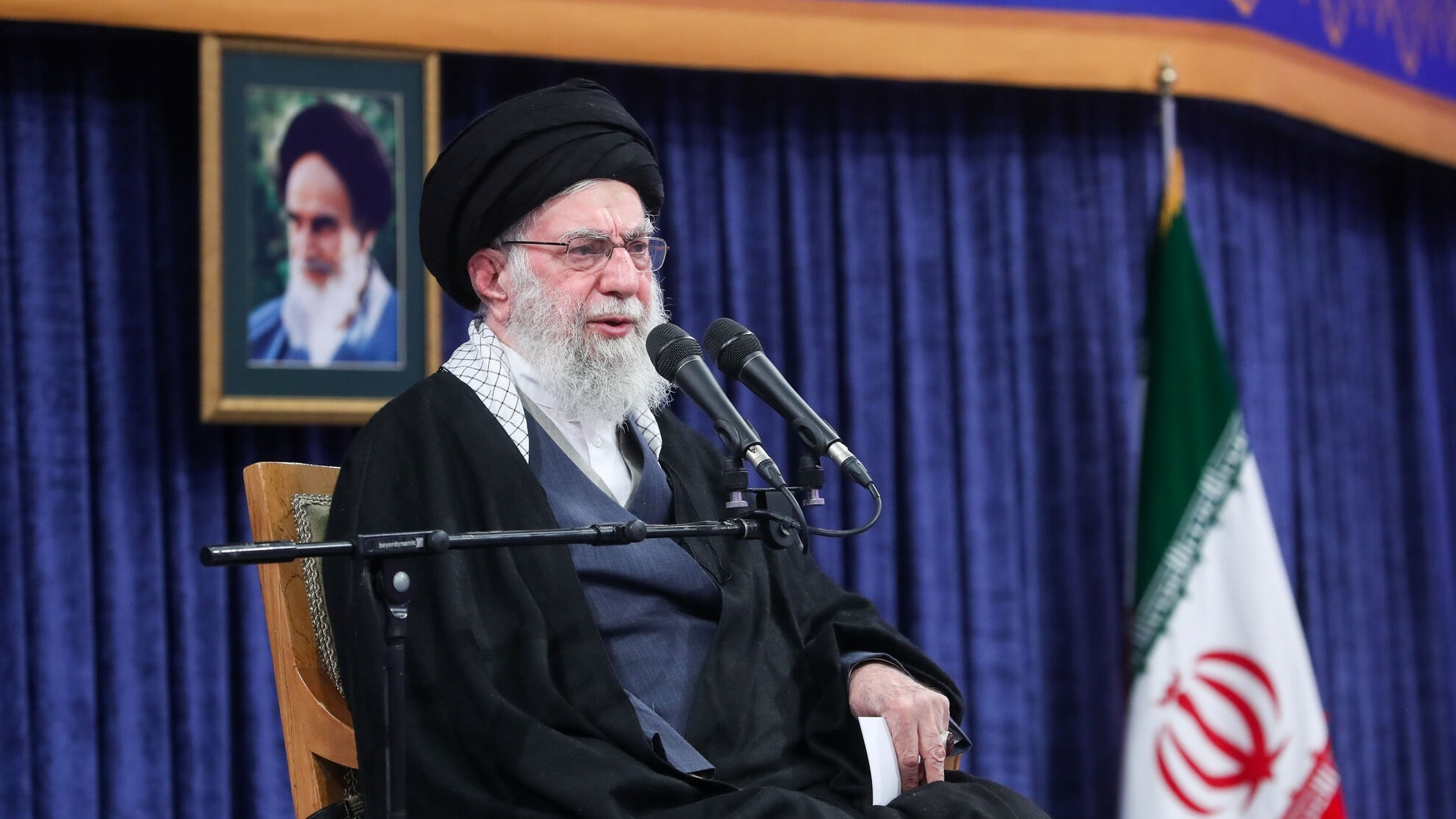South Korea elects liberal Lee as president
Lee Jae-myung, leader of the Democratic Party, was elected president following months of political instability in the wake of Yoon Suk Yeol's impeachment


A free daily email with the biggest news stories of the day – and the best features from TheWeek.com
You are now subscribed
Your newsletter sign-up was successful
What happened
Lee Jae-Myung was sworn in as South Korea's president today after his main challenger, conservative former labor minister Kim Moon-soo, conceded defeat this morning. With all votes counted from Tuesday's snap election, Lee got 49.4% to Kim's 41.2%. Turnout surpassed 79%, the highest since 1997.
Lee, a 61-year-old left-leaning former factory worker who grew up in poverty, took office immediately because his conservative predecessor, Yoon Suk Yeol, was impeached and removed from office for briefly declaring martial law in December.
Who said what
The election was widely seen as a referendum on Yoon, who was officially removed in April, three years into his five-year term. Lee, whose Democratic Party controls the National Assembly in Seoul, "takes office as one of the most powerful presidents that South Korea has elected in recent decades," The New York Times said.
The Week
Escape your echo chamber. Get the facts behind the news, plus analysis from multiple perspectives.

Sign up for The Week's Free Newsletters
From our morning news briefing to a weekly Good News Newsletter, get the best of The Week delivered directly to your inbox.
From our morning news briefing to a weekly Good News Newsletter, get the best of The Week delivered directly to your inbox.
Despite his "storming victory," Lee's "honeymoon will barely last the day," the BBC said. South Korean voters "vehemently rejected the military dictatorship that was almost forced upon them," but the new president "has a Donald Trump–shaped crisis to avert" before he can focus on strengthening democracy and uniting the country.
What next?
Lee began his five-year term hours before Trump doubled U.S. steel tariffs to 50%, hitting one of South Korea's main exports to its second-largest trading partner. Another of the country's core industries, cars, is already subject to 25% Trump tariffs.
A free daily email with the biggest news stories of the day – and the best features from TheWeek.com
Peter has worked as a news and culture writer and editor at The Week since the site's launch in 2008. He covers politics, world affairs, religion and cultural currents. His journalism career began as a copy editor at a financial newswire and has included editorial positions at The New York Times Magazine, Facts on File, and Oregon State University.
-
 How the FCC’s ‘equal time’ rule works
How the FCC’s ‘equal time’ rule worksIn the Spotlight The law is at the heart of the Colbert-CBS conflict
-
 What is the endgame in the DHS shutdown?
What is the endgame in the DHS shutdown?Today’s Big Question Democrats want to rein in ICE’s immigration crackdown
-
 ‘Poor time management isn’t just an inconvenience’
‘Poor time management isn’t just an inconvenience’Instant Opinion Opinion, comment and editorials of the day
-
 Rubio boosts Orbán ahead of Hungary election
Rubio boosts Orbán ahead of Hungary electionSpeed Read Far-right nationalist Prime Minister Viktor Orbán is facing a tough re-election fight after many years in power
-
 Key Bangladesh election returns old guard to power
Key Bangladesh election returns old guard to powerSpeed Read The Bangladesh Nationalist Party claimed a decisive victory
-
 EU and India clinch trade pact amid US tariff war
EU and India clinch trade pact amid US tariff warSpeed Read The agreement will slash tariffs on most goods over the next decade
-
 Maduro pleads not guilty in first US court hearing
Maduro pleads not guilty in first US court hearingSpeed Read Deposed Venezuelan leader Nicolás Maduro and his wife Cilia Flores pleaded not guilty to cocaine trafficking and narco-terrorism conspiracy
-
 Iran’s government rocked by protests
Iran’s government rocked by protestsSpeed Read The death toll from protests sparked by the collapse of Iran’s currency has reached at least 19
-
 Israel approves new West Bank settlements
Israel approves new West Bank settlementsSpeed Read The ‘Israeli onslaught has all but vanquished a free Palestinian existence in the West Bank’
-
 US offers Ukraine NATO-like security pact, with caveats
US offers Ukraine NATO-like security pact, with caveatsSpeed Read The Trump administration has offered Ukraine security guarantees similar to those it would receive from NATO
-
 Hong Kong court convicts democracy advocate Lai
Hong Kong court convicts democracy advocate LaiSpeed Read Former Hong Kong media mogul Jimmy Lai was convicted in a landmark national security trial
